Serving Cook, Will & DuPage for over 10 years.
Oasis Hospice & Palliative Care, Inc. believes in affirming life. We exist to be a sanctuary and a refuge for our patients and their families thereby improving the quality of life for our patients who are dealing with life-limiting illnesses.
Oasis Hospice and Palliative Care is a place of refuge. Whether at home, or in our state of the art home care facility in Flossmoor IL, House of Goshen, we always aim at a spirit of excellence, and to best serve the communities which we are part of.
Oasis Hospice.
Bringing refuge, since 2014.
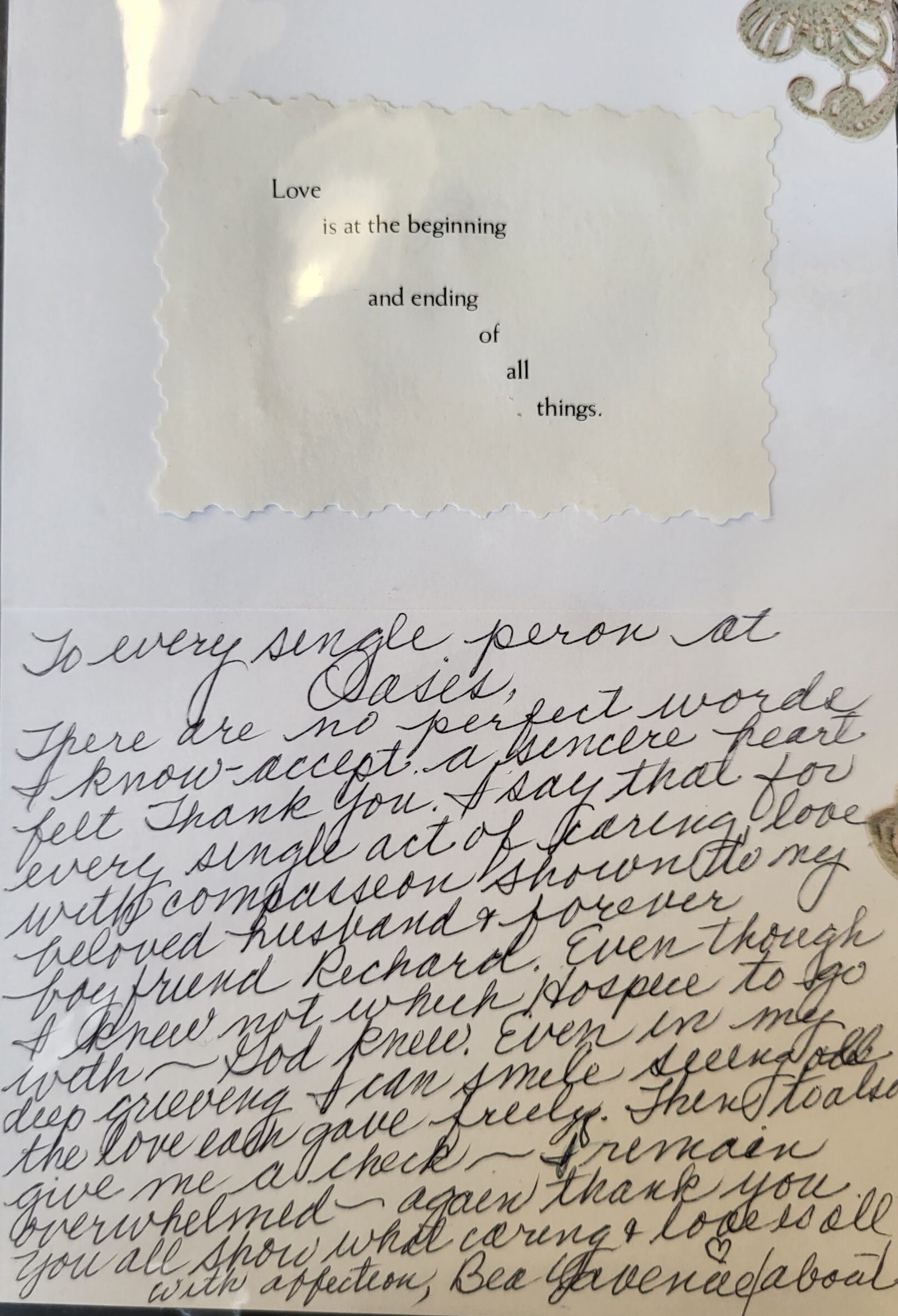
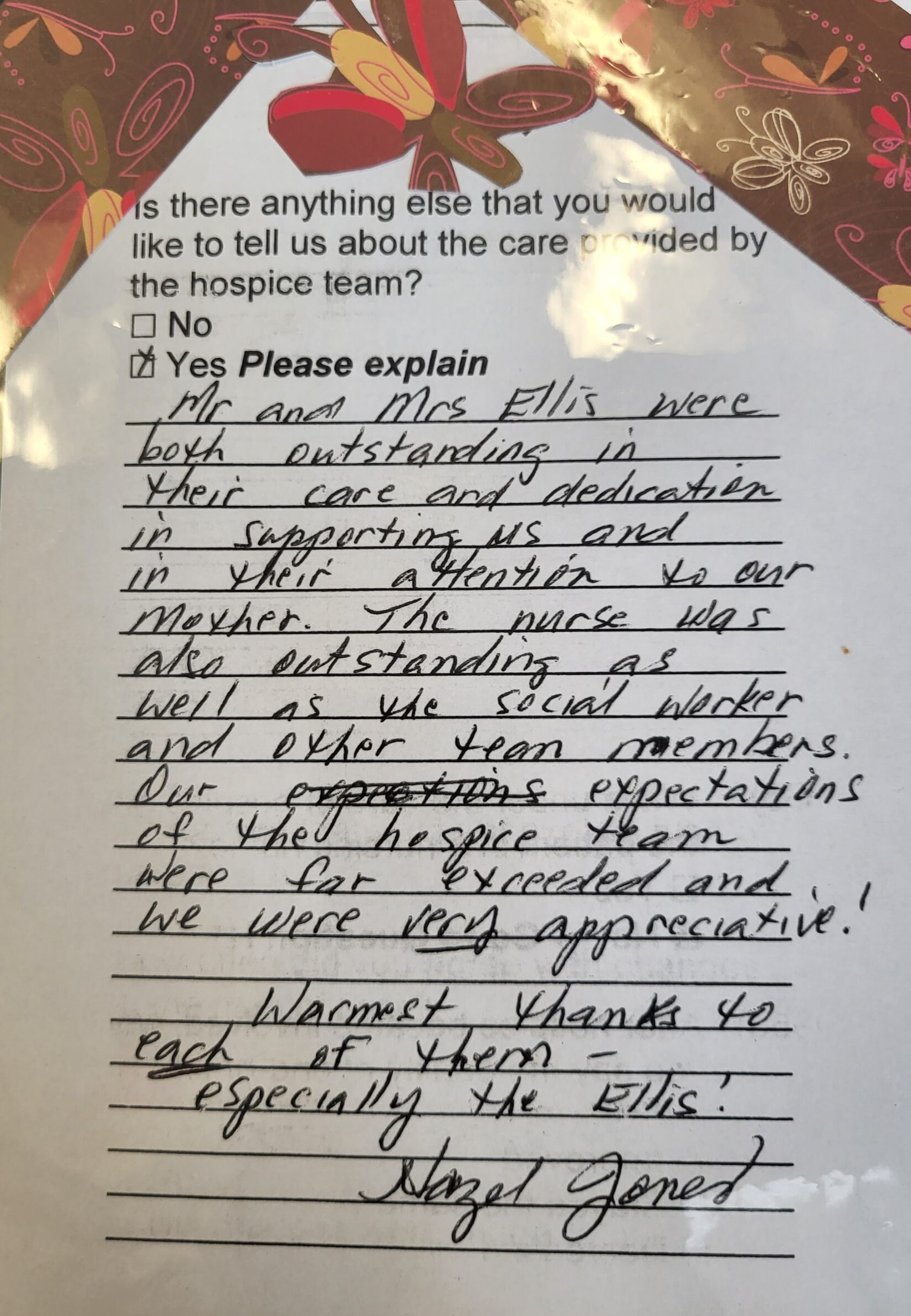
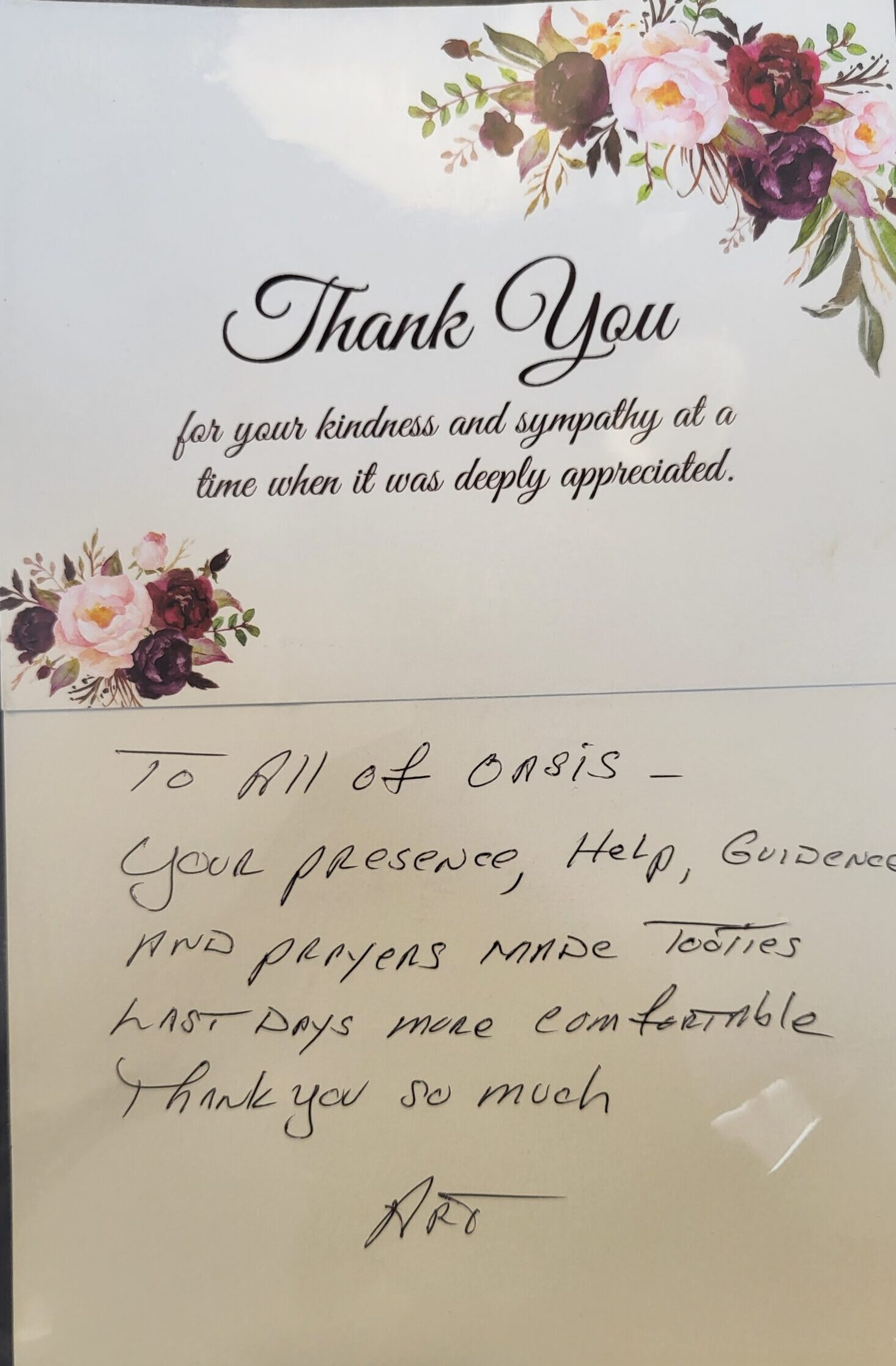
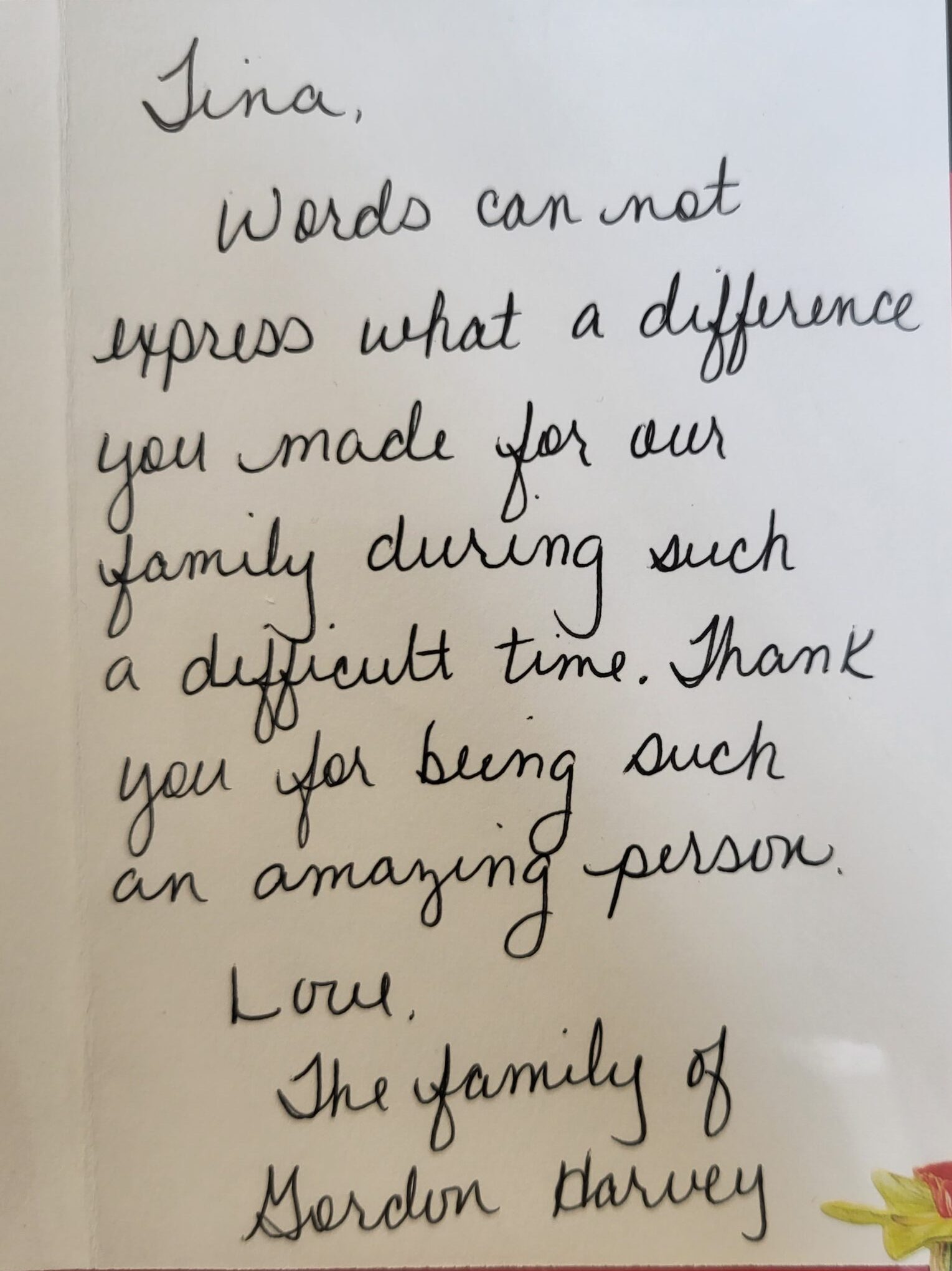
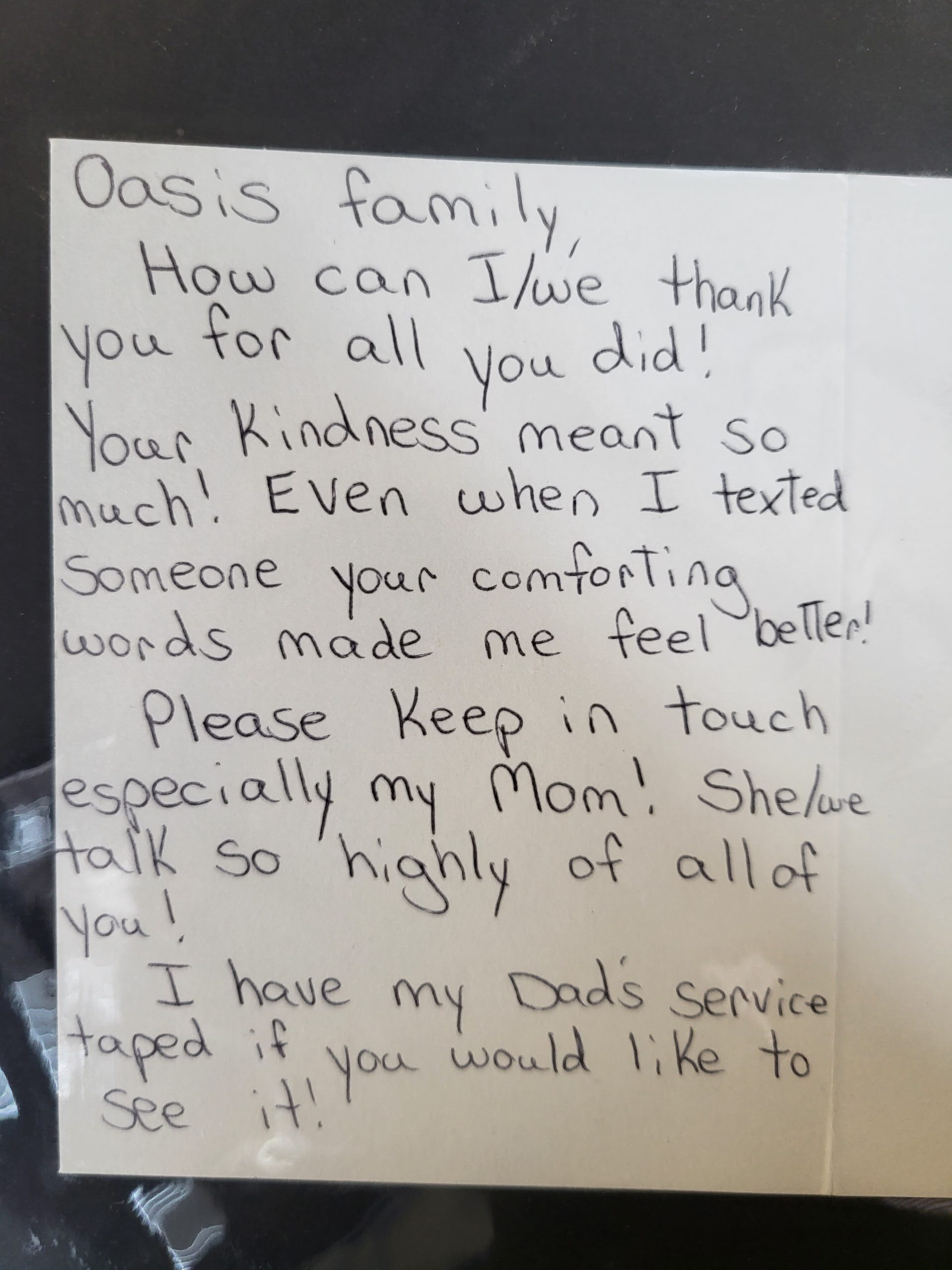

Hospice care is specialized medical care for individuals with a terminal illness, focusing on comfort, dignity, and quality of life rather than curative treatments. Hospice can be provided at home, in a facility, or in an inpatient hospice home of facility, like House of Goshen. Call 708-742-8175 to learn more

Hospice care is available at any stage during the illness once a terminal diagnosis is received. When a decision has been made to transition from curative to comfort led care, please call our team at Oasis Hospice for a free consultation.
We work compassionately and walk proudly with our patients and their families.

Hospice is provided by Medicare Part A, Medicaid and most private insurance.
If there is a lack of insurance coverage, Oasis Hospice and Palliative Care can work with the patient and their family to help ensure appropriate services are rendered.
This is provided in the patient's residence by our interdisciplicary team of hospice professionals, nursing staff and volunteers.
General inpatient care may be required care procedures that exceed the capacity of a home for chronic symptom management.
A more intense level of hospice care, though still provided in the home during brief periods of crisis to control unmanaged symptoms.
We offer five-day intervals of respite care for availability, as needed and approved by our team to provide caregivers with short-term relief.
In addition to the teams below, we also utilize dietitians, pharmacists, volunteers, physical, speech and occupational therapists.
The primary care physician remains an important part of the patient's care. Wieth their input, the hospice medical director and the hospice team will coordinate care.
The registered nurse case manager is responsible for assessing and managing a patient's care.
The hospice social worker has in-depth knowledge and expertise in ethnic, cultural and economic diversity; including liasing with family and support networks.
The hospice chaplain is available to provide counsel and spiritual support for our patients and their families. They are able to request the assistance of all faith clergies to meet the unique needs of a patient and their family.
Using music to professionally address physical, emotional, cognitive and social needs, music therapy can be used to attend to goals for the hospice patient in a non-threatening manner. Such hoospice specific goals can be to alleviate pain, decrease anxiety, enhance self expression.
Hospice aides provide personal care under the direction of a registered nurwse. Care includes assistance with activites of daily living such as bathing, hair and mouth care.

At Oasis Hospice, we are dedicated to providing compassionate, faith-based hospice care to patients and families across the Chicagoland. Our mission is to provide dignity and refuge to those facing life-limiting illness.
With a team of highly experienced healthcare professionals, we ensure each patient receives personalized care tailored to their unique needs.
Hospice is more than a service—it is a calling, and we are committed to supporting families through every step of the journey.
Our quality care speaks for itself, with heartfelt testimonials from families we have served. Whether at home or in an inpatient setting, we provide medical, emotional and spiritual support & guidance for loved ones.
📞 Call us at 708-742-8175 to learn more about how we can help.
Hospice provides an interdisciplinary team of health care professionals:
• Physician: The primary care physician remains an important part of the patient’s care. With their input, the hospice medical director and the hospice team will coordinate care.
• Nursing: The registered nurse case manager is responsible for assessing and managing a patient’s care.
•
Social Work: The hospice social worker has in-depth knowledge and expertise in ethnic, cultural and economic diversity; including liaising with family and support networks.
• Spiritual Support: The hospice chaplain is available to provide counsel and spiritual support for our patients and their families. They are able to request the assistance of all faith clergies to meet the unique needs of a patient and their family.
• Music Therapy: Using music to professionally address physical, emotional, cognitive and social needs, music therapy can be used to attend to goals for the hospice patient in a non-threatening manner. Such hospice specific goals can be to alleviate pain, decrease anxiety, enhance memory and encourage self-expression.
• Hospice Aide: Hospice aides provide personal care under the direction of a registered nurse. Care includes assistance with activities of daily living such as bathing, hair and mouth care.
• Additional Team members are Dietitians, Pharmacists, Volunteers, Physical, Speech and Occupational therapists.
• Hospice provides a holistic approach to meet all the patient’s and family’s needs. A coordinated team of hospice professionals, assisted by volunteers, work to meet the patient’s and family’s emotional and spiritual needs, as well as the patient’s physical needs.
• The emphasis is on symptom management and on emotional and spiritual support tailored to the needs of the patient and family.
• Hospice recognizes that a serious illness affects the entire family as well as the person who is ill. The family, not just the patient, is the “unit of care” for hospice professionals.
Hospice is covered by most insurance plans, including Medicare and Medicaid, with few out of pocket costs to the patient.
The Medicare hospice benefit covers costs related to the terminal illness, including the services of the hospice team, medication, medical equipment and supplies.
Medications: The Medicare hospice benefit covers medications needed to treat the patient’s terminal illness are not covered by the hospice benefit.
Medical supplies: The physician and nurse will work with the family to determine which medical supplies and equipment the patient needs.
Hospice care is available at any stage during the illness once a terminal diagnosis is received. At the point when the medical goal changes from cure to comfort, it is time to call Oasis Hospice for a consultation. We will work and walk compassionately with our patients and their families on the journey.
A physician must certify that a hospice patient has a terminal illness and an estimated life expectancy of six months or less if the illness runs its usual course without aggressive treatment. The patient must agree to hospice care. Generally, most hospice providers accept everyone who meets those criteria, regardless of the patient’s financial situation or insurance coverage.
Hospice involves acknowledging that most diseases in their advanced form cannot be cured. It does not mean giving up. The focus of hospice is toward helping the patient achieve maximum physical comfort and peace of mind.
Hospice care does not automatically end after six months. Medicare and most other insurers will continue to pay for hospice care as long as a physician certified that the patient continues to have a limited life expectancy.
Occasionally, the quality of care provided by hospice leads to substantially improved health, and life expectancy exceeds six months. When this happens, the hospice provider may transfer care to a non-hospice care provider like home health. Later, when patients become eligible for hospice, they can re-elect the hospice benefit. There is no penalty for getting better!
Receive Quality, Dignified Care at Oasis Hospice